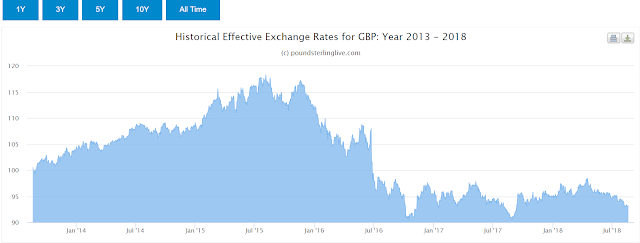Patrick Minford's holidays

Skewering Patrick Minford has become something of an economists' bloodsport. I admit, I have done my fair share of Minford-bashing, though I do try to stay away from trade economics. Others are much better at lampooning Minford's antediluvian approach to trade economics than me. But when Minford starts pontificating on the effect of currency movements on the balance of trade, I can't resist getting out the shotgun. Minford is appallingly bad on anything that involves foreign exchange. He just doesn't seem to understand how floating exchange rates interact with trade dynamics and capital flows. So it is unsurprising that his latest venture into this complex subject is as disastrous as the last . Here is Minford, in the Express , talking about Brits and their holidays: The mood of British consumers is good, reflecting the fact that the economy continues to grow and create record employment. A staycation is best because of the Brexit devaluation, which makes Britis...
